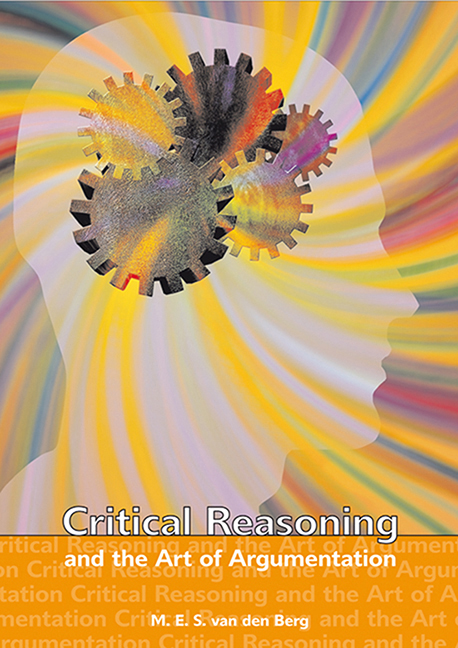Book contents
- Frontmatter
- Contents
- Preface
- CHAPTER 1 What is critical reasoning?
- CHAPTER 2 Obstacles to clear thinking: Preconceived ideas and fallacies
- CHAPTER 3 Working with arguments
- CHAPTER 4 How to analyse arguments
- CHAPTER 5 Definitions, counterexamples and counterarguments
- CHAPTER 6 Evaluating arguments
- CHAPTER 7 Applying your knowledge and skills to the evaluation of arguments
- CHAPTER 8 Constructing arguments and writing argumentative essays
- References
- Glossary
- Index
CHAPTER 7 - Applying your knowledge and skills to the evaluation of arguments
Published online by Cambridge University Press: 20 February 2020
- Frontmatter
- Contents
- Preface
- CHAPTER 1 What is critical reasoning?
- CHAPTER 2 Obstacles to clear thinking: Preconceived ideas and fallacies
- CHAPTER 3 Working with arguments
- CHAPTER 4 How to analyse arguments
- CHAPTER 5 Definitions, counterexamples and counterarguments
- CHAPTER 6 Evaluating arguments
- CHAPTER 7 Applying your knowledge and skills to the evaluation of arguments
- CHAPTER 8 Constructing arguments and writing argumentative essays
- References
- Glossary
- Index
Summary
The pure and the simple truth is rarely pure and never simple.
Oscar WildeIn this chapter we will apply what we have learnt in the previous chapters to the evaluation of arguments. To help you understand and evaluate arguments, I will set out five steps in argument evaluation. Remember that these steps are only guidelines and are not meant to be followed blindly. There are many ways to evaluate arguments. As a critical thinker, you can use your own methods. There are, however, certain points we have to look out for when we evaluate arguments. These are highlighted in the following steps:
Five steps in the evaluation of arguments
Understand the meaning of the argument
Make sure that you understand what the argument is, in fact, saying – in other words, the meaning of the argument. Do not underestimate the importance of this step. The very first thing you need to establish is whether a passage does, in fact, present an argument, or whether it describes, explains, narrates or commands. If it is an argument, make sure you understand its meaning. If there are any words you do not understand, look them up in a good dictionary. If there are ambiguous words or phrases replace them with words or phrases that, in your opinion, clearly express the arguer's meaning. Remember to apply the principle of charitable interpretation here. There is no point in making an argument look silly just so that you can show it to be unsound. Give the arguer the benefit of the doubt and express the argument in its strongest possible form. This might mean that you have to read and reread the passage carefully several times before you understand it.
Keep in mind the context of the passage and consider key words and recurring themes. Decide whether there is one argument, or more – and, if so, how they are related. At this early stage of argument evaluation it is also important to determine what type of argument is being made, because different types of arguments are assessed differently. Determine whether the argument is deductive, inductive, empirical or a value argument. Remember that a single complex argument may include all four types.
- Type
- Chapter
- Information
- Critical Reasoning and the Art of Argumentation , pp. 104 - 127Publisher: University of South AfricaPrint publication year: 2010



